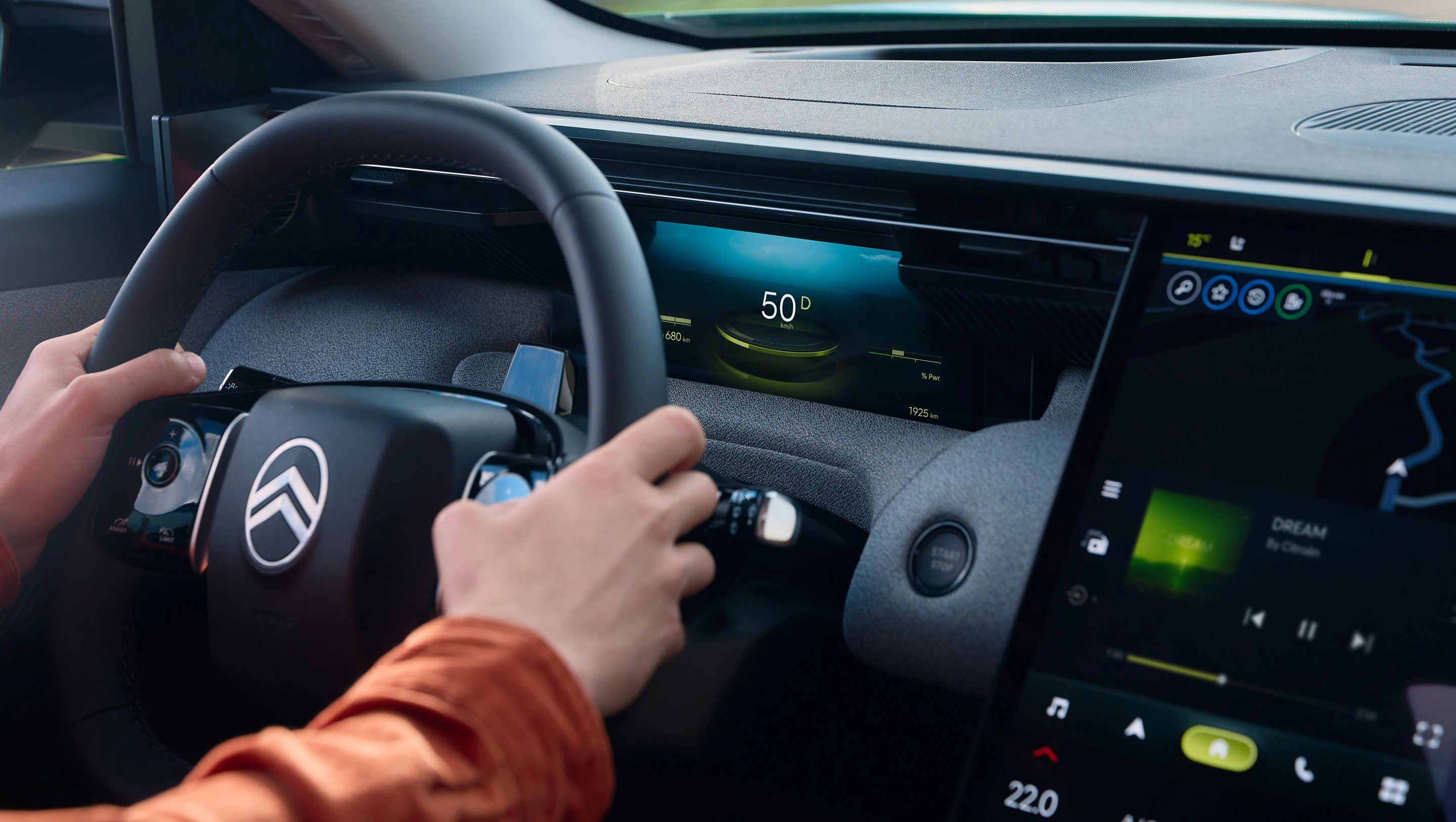
Are electric cars better for the environment?
In an increasingly eco-conscious world, electric vehicles (EVs) are taking more of the market share from petrol and diesel alternatives. If the UK government’s plan to cut down on carbon goes ahead, EVs will be the only option when it comes to new sales, although Citroën will continue to support existing owners of all Citroën vehicles beyond this.
How does electric compare with petrol and diesel?
As all-electric cars rely on battery power alone, the emissions associated with petrol and diesel motoring are completely removed. In the case of hybrids, traditional engines work alongside batteries to reduce a car’s reliance on petrol and diesel, in turn significantly lowering the exhaust emissions.
For this reason, EVs are often fully or partially exempt from taxes and clean-air enforcement charges, among many other benefits.
With more and more drivers switching, the popularity of electric cars is growing year on year. Even despite the impact of Covid-19, there’ve been over 54,000 battery electric vehicles (BEVs) registered in 2021 so far, according to the Society of Motor Manufacturers and Traders (SMMT). That’s more than twice as many as last year.
Are electric cars really zero emission?
Pure electrics, i.e. those powered by batteries and electricity only, completely remove the exhaust pollutants generated by traditional combustion engines. When driven in all-electric mode, hybrids like the Citroën C5 Aircross SUV Hybrid also offer this benefit. There are still emissions created through tyre and break wear, but this is at a much lower level.
Even after the 2030 ban on brand-new petrol and diesel cars, however, purchase and ownership of existing models will not be prohibited. Despite the move to electric, Citroën will continue to support owners of all vehicles beyond the ban.
How eco-friendly is the production of electric cars?
Although EV production can generate more emissions than an equivalent petrol or diesel model, through processes involving fossil fuels, it’s generally believed that this is outweighed by the lowered emissions across an electric car’s lifetime.
The benefits of owning an EV, for both you the driver and the environment, are also expected to improve as electric power becomes more commonplace.
Electric cars are already becoming more commonplace on our roads, despite the 2030 ban still being almost a decade away. We will also be ready ahead of the switch, with Citroën promising an EV option of each vehicle in the range by 2025.
As their numbers continue to increase, so too will the infrastructure supporting them, including public charging points.
Will petrol and diesel cars be banned in the uk?
In 2018, the UK government announced a ban on the sale of new petrol and diesel cars that would take effect in 2040. This has since been brought forward to 2030, however, to help achieve the government’s goal of a carbon-neutral UK by 2050.
However, ownership of existing petrol and diesel cars will not be prohibited. We, along with all of our dealerships and staff, will continue to support and maintain all customer vehicles, regardless of fuel type.
Certain hybrid vehicles will be exempt for a few years after that, but details on which models will qualify are yet to be announced. As a mix of traditional combustion power and electric, models such as the C5 Aircross SUV Hybrid could be crucial in helping the masses make the switch.
Citroën electric vehicles
Committed to electric mobility for all, Citroën’s ever-growing range of EVs offers something for drivers of every type. Whether it’s the new and all-ëlectric ë-C4 for those wanting to jump in straight away, or the C5 Aircross plug-in hybrid for those who still want the added security of petrol.
If added space and seats is your thing, there’s even the ë-Spacetourer with room for up to eight and a range of over 200 miles.

